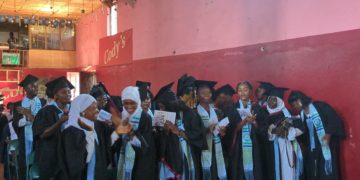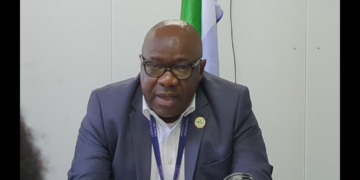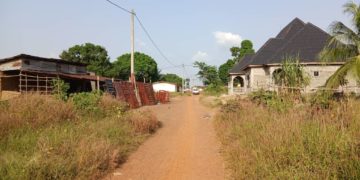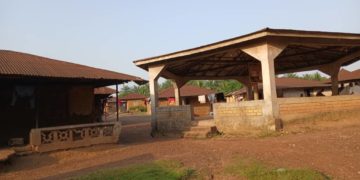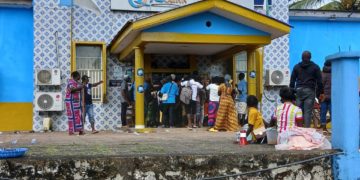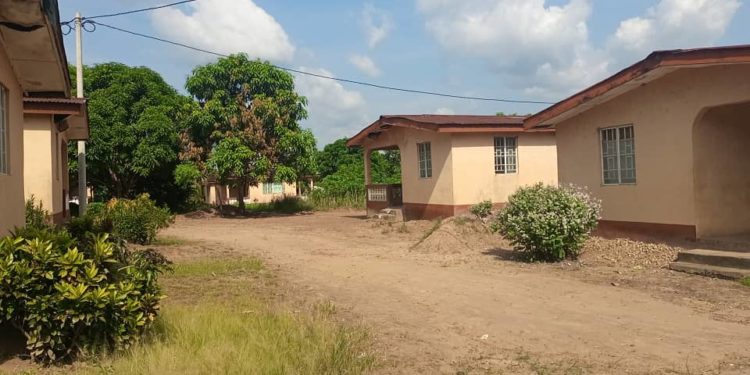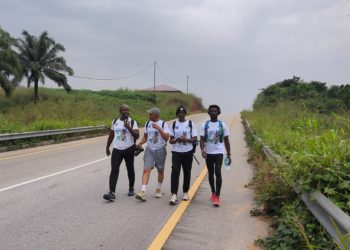By Brima Sannoh
In the sun-worn town of Pujehun, in southern Sierra Leone, the rusting roofs of abandoned camps tell a silent story of neglect. Once built to house amputees and war-wounded survivors of the country’s brutal civil war, many of these settlements now lie quiet ghost towns where promises have long since withered.
Among the few who remain is Sorba Simbo, a 63-year-old amputee. He lives alone in what used to be a vibrant compound of survivors. Today, all seven of his original companions are gone, victims of age, illness, and the slow erosion of hope. With his left arm hacked off by rebels in 1997, Sorba’s daily survival now depends on frail health and dwindling community support.
“I didn’t choose this life,” he says softly, seated on a worn wooden bench outside his shared building on Tongay Road. “We were just harmed for a war we didn’t cause. Now, we’ve been left to suffer.”
Sierra Leone’s 11-year civil conflict, which raged from 1991 to 2002, left behind deep scars, over 50,000 dead, thousands maimed, and communities shattered. In the aftermath, the Truth and Reconciliation Commission (TRC) called for reparations, including monthly pensions for adult amputees and others severely injured by the violence. The goal was to restore dignity to those whose ability to earn a living had been permanently taken away.
The government, with support from international partners like Norway, initially constructed camps to house the war-wounded. But once full responsibility shifted to local authorities, support faded. Today, the five camps surrounding Pujehun Town are no longer shelters for victims but are instead occupied by able-bodied individuals seeking housing.
Sierra Leone’s 2011 Persons with Disability Act was a legislative step in the right direction. Yet for people like Sorba, its impact has been minimal. Discrimination persists. Access to healthcare and education remains limited. And crucially, no pension support system exists for those disabled by war.
Official figures are also murky. The 2015 national census recorded only 1.3% of the population as persons with disabilities, down from 2.4% in 2004. Civil society leaders argue that the absence of credible, up-to-date data makes meaningful planning and support impossible. In Pujehun District alone, at least 4,843 people live with various forms of disability, including war injuries, polio, blindness, and amputations.
“The Ministry of Social Welfare has no mandate to provide pensions to persons with disabilities,” says Emmanuel Mbombor, the district’s Senior Social Services Officer. “Our support is general and not targeted to individuals like war amputees.”
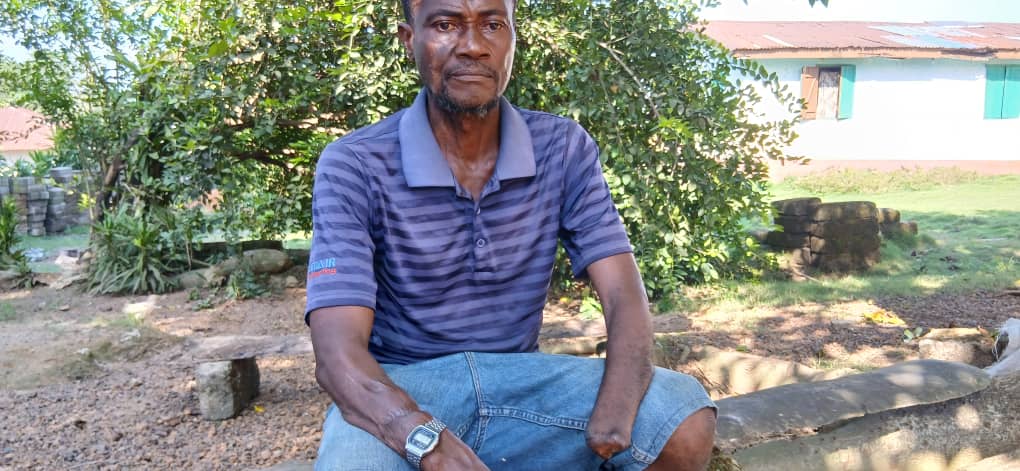
Sorba Simbo, a resident of Tongay Road Amputee Camp, Pujehun District. Photo, Brima Sannoh, ManoReporters, April 25th, 2025.
NaCSA, the National Commission for Social Action, echoes that sentiment. “We have never paid pensions to disabled persons,” says district coordinator Nixon Collier. “What we do offer are cash transfers to vulnerable households, including some persons with disabilities, under the World Bank’s Social Safety Net programme.”
Civil society leaders are increasingly vocal in their criticism of the government’s failure to implement the TRC’s recommendations. Julius George Kamara, Secretary of the Pujehun District Civil Society Forum, calls it a betrayal.
“The TRC was funded with public and international resources. If the government had no intention of acting on its findings, then what was the point?” he asks. “The victims of the war deserve better. They deserve more than broken promises.”
For Sorba Simbo, the answers may never come. He clutches a faded photograph of his younger self before the machete, before the suffering. His eyes well with memories of a life forever altered. “I survived the war,” he says. “But I don’t know if I survived the peace.”
This story was produced with support from the African Transitional Justice Legacy Fund (ATJLF), through the Media Reform Coordinating Group (MRCG), under the project “Engaging Media and Communities to Change the Narrative on Transitional Justice Issues in Sierra Leone.


